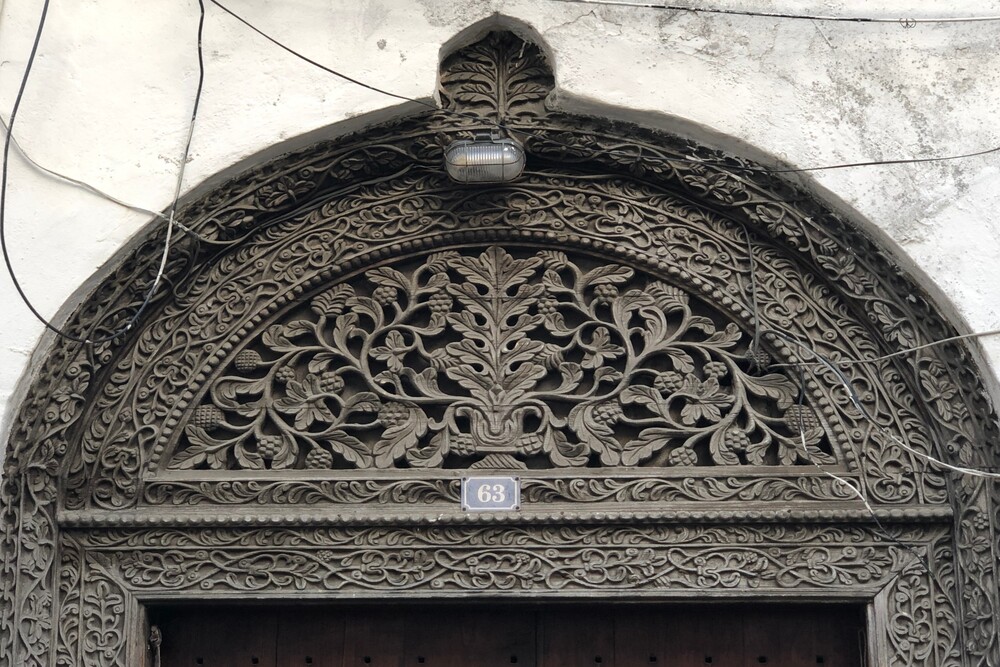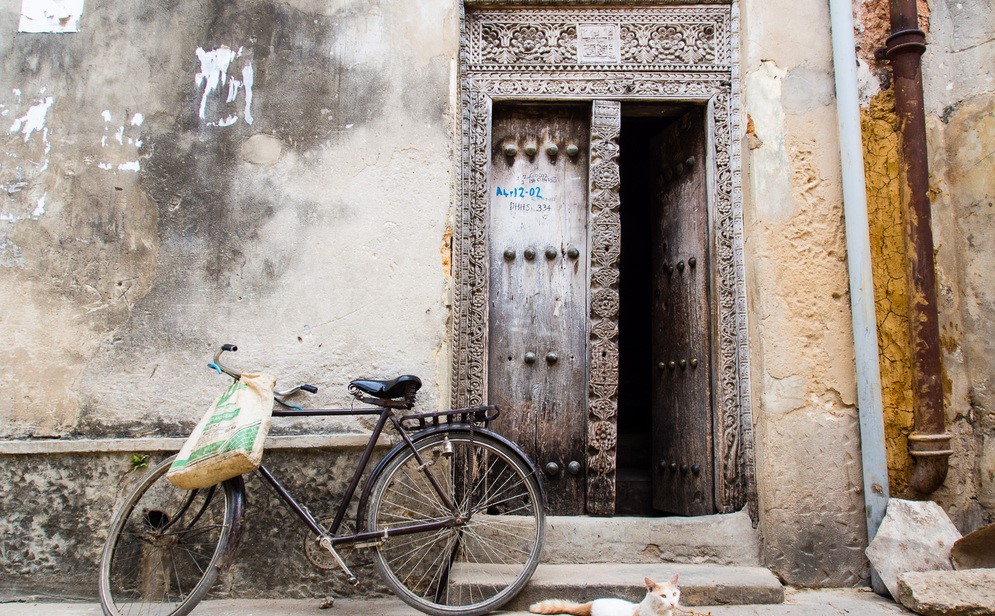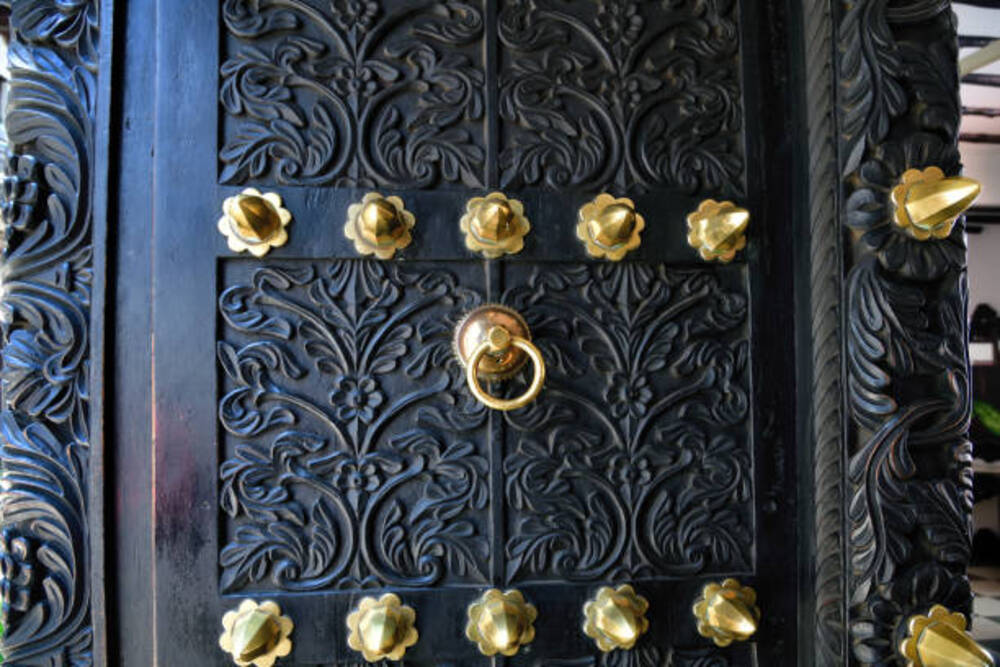Zanzibar doors are also known as Swahili doors or Zanzibar doors. They were developed on the Swahili coast during the Middle Ages and peaked in the 19th century. The door is usually the first and foremost key element of Swahili architecture and was the historically first item that was built before the rest of the home. The original Zanzibar doors owe their distinctive brass studs to India-the studs originated as a defense against war elephants, used to batter down fortified doors in the tribal wars of Punjabi history. Needless to say, this distinctive feature of Stone Town`s doors has always been purely decorative. 
They are finely carved doors that are found around Stone Town in Zanzibar. The largest of doors with the most elaborate of carvings are found in Zanzibar city. The doors were considered a mark of status and prestige for wealthy Swahili merchant families, especially in the old sections of Zanzibar attaining impressive dimensions in terms of size and carvings details. The door is typically made of teak or mahogany wood and is intricately carved with various designs and patterns. 
The buildings of Stone Town in Zanzibar reflect a complex fusion of Swahili, Indian, Arab, and European influence in building traditions and town planning. The East African archipelago in the Indian Ocean off the coast of Tanzania enjoys a reputation as a melting pot of religions. In the maze of narrow alleyways that make up the old quarter of the Stone Town on the main island of Unguja, mosques stand side with Hindu temples and Churches among houses made of coral. Zanzibar had communities of Oman Arabs, Hadhrami Arabs, Baluchis, Persians, Somalis, Malagasies, Comorians, and Indian Hindus, and the Zanzibari native Africans both Christians and Muslims people. 
You can experience this part of the history of Zanzibar through the Zanzibar Stone Town tour and discover the untold story of Zanzibar Doors and even meet some craftsmen who still make a variety of Zanzibar doors to this day for ornamental home or institutional building uses.









0 comments for this post